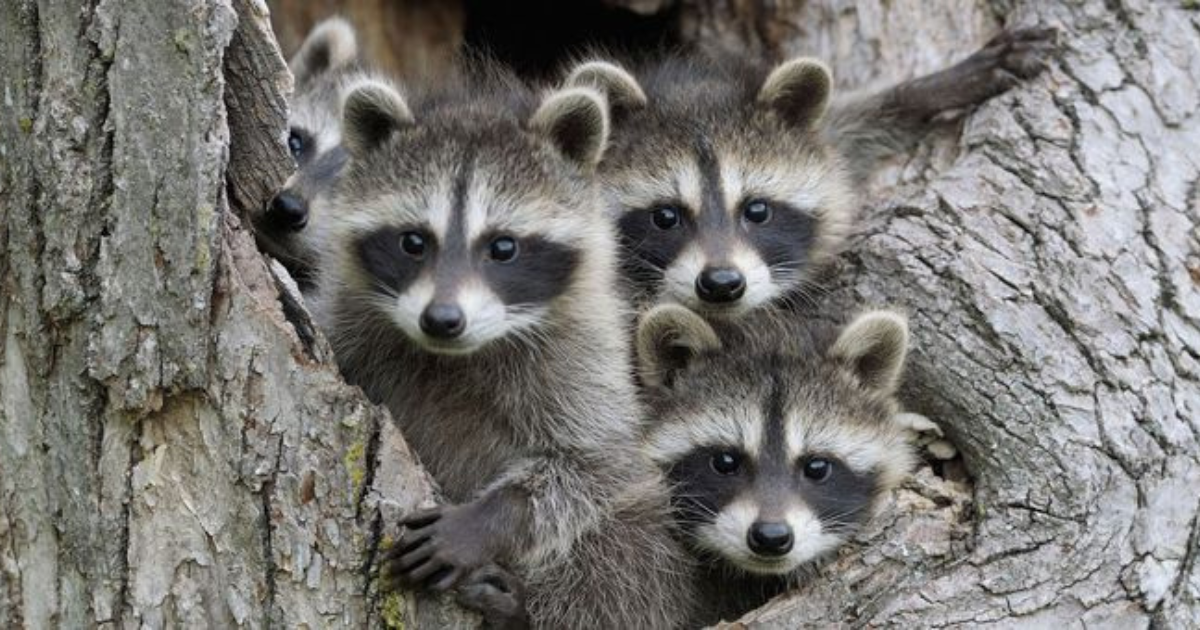📖 Table of Content:
Raccoons are often viewed as pesky invaders rummaging through trash bins, but there’s more to these clever creatures than meets the eye.
Welcoming raccoons to your backyard can enrich your ecosystem, provide entertainment, and even teach valuable lessons about wildlife. In this blog post, we explore ten compelling reasons to embrace these furry friends in your outdoor space.
1. Natural Pest Control
Raccoons are excellent natural pest controllers. They feed on insects, grubs, and other invertebrates that might otherwise wreak havoc in your garden. By allowing raccoons to roam your backyard, you are inviting a natural solution to your pest problems.
Unlike chemical pesticides that can harm beneficial insects and the environment, raccoons provide a green alternative. They patrol your yard, seeking out beetles, snails, and even wasps, helping maintain a balanced ecosystem.
Their nocturnal habits ensure they work while you’re asleep, making them a quiet and efficient ally in your gardening efforts.
2. Soil Aeration
Raccoons can be your garden’s best friends when it comes to natural soil aeration. Their digging habits, often seen as a nuisance, actually help to aerate the soil, promoting healthy plant growth.
They turn over the soil while searching for food, which allows oxygen to reach plant roots and enhances drainage. This process is crucial in preventing root rot and promoting nutrient absorption.
Encouraging raccoons to visit your backyard means you can benefit from this natural tilling method, reducing the need for mechanical aeration tools.
3. Fascinating Wildlife Observation
Having raccoons in your backyard offers a unique opportunity for wildlife observation. These animals are intelligent and curious, providing endless entertainment with their antics.
Watching raccoons can be an educational experience for both children and adults, teaching them about animal behavior and ecology. Their dexterity and problem-solving skills are truly fascinating to observe.
By welcoming raccoons, you’re creating a mini wildlife sanctuary where you can enjoy and learn about nature from the comfort of your home.
4. Biodiversity Enhancement
Raccoons contribute to the biodiversity of your garden. As omnivores, they have a varied diet that helps control multiple species populations, maintaining ecological balance.
Their presence can attract other wildlife, such as birds and beneficial insects, enhancing the overall biodiversity of your backyard. This diversity supports a robust ecosystem where different species thrive together.
By welcoming raccoons, you promote a healthier environment where plants and animals coexist, enriching your outdoor experience.
5. Raccoons as Pollinators
While not traditional pollinators, raccoons can play a role in pollination. As they move through your garden, they may inadvertently transfer pollen between plants, aiding in reproduction.
This incidental pollination can support the growth of flowers and fruits, benefiting your garden’s productivity. Raccoons’ interaction with plants adds a unique dynamic to the pollination process.
Encouraging their presence means embracing this unconventional yet beneficial aspect of wildlife gardening, potentially increasing your garden’s yield and floral beauty.
6. Cultural Connection to Nature
Raccoons can help foster a deeper cultural connection to nature. Observing them encourages mindfulness and appreciation for wildlife, enriching our understanding of natural ecosystems.
Their presence in your backyard can inspire creativity and storytelling, often becoming characters in children’s tales and personal reflections. This connection nurtures a sense of wonder and a desire to coexist harmoniously with nature.
Welcoming raccoons invites an opportunity to engage with the environment meaningfully, deepening your relationship with the natural world.
7. Natural Waste Management
Raccoons can contribute to natural waste management by scavenging and breaking down organic materials. They are known to help decompose compost heaps, accelerating the process of turning waste into valuable soil.
Their foraging behavior assists in reducing waste and recycling nutrients back into the earth, promoting sustainability. By accepting raccoons, you aid in the natural cycle of decomposition.
While managing waste, it’s essential to secure trash bins to ensure raccoons focus on compost rather than household garbage.
8. Educational Opportunities
Raccoons can provide fantastic educational opportunities, especially for young learners. Observing their behavior offers insights into animal ecology and environmental science.
These curious creatures can inspire educational projects, such as wildlife journals or photography, fostering a love for nature and learning. Interacting with raccoons encourages children to ask questions and seek knowledge about wildlife and their habitats.
By welcoming raccoons, you create a living classroom where both kids and adults can engage with and learn from the natural world.
9. Support Local Wildlife
Supporting local wildlife, including raccoons, is vital for maintaining balanced ecosystems. By providing a safe haven, you contribute to biodiversity and ecological health.
Your backyard can serve as a refuge, offering food and shelter to raccoons and other native species, supporting their survival and proliferation. This act of stewardship helps preserve local wildlife populations and their habitats.
Encouraging raccoons to visit fosters a compassionate approach to conservation, connecting you to the larger environmental effort.
10. Nighttime Entertainment
Raccoons provide a unique form of nighttime entertainment. Their nocturnal antics are amusing and intriguing to observe, offering a glimpse into the secret life of wildlife.
Watching raccoons explore and interact with their environment can be a relaxing and entertaining way to end the day. Their presence transforms your backyard into a stage where nature’s night show unfolds.
By welcoming raccoons, you enjoy a connection to the natural world, discovering the joy of watching wildlife in its natural habitat.










